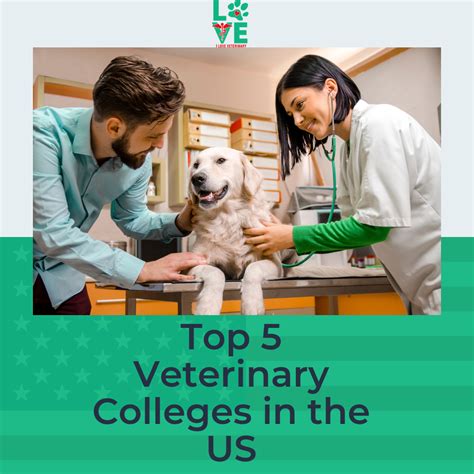Exotic animal veterinary medicine is a specialized field that requires extensive training and experience. Exotic vets work with a wide variety of animals, including reptiles, amphibians, birds, mammals, and fish. They provide preventive care, diagnose and treat illnesses, and perform surgeries.

Why Become an Exotic Vet?
Exotic veterinary medicine is a rewarding career that offers the opportunity to work with a diverse group of animals. Exotic vets are in high demand, as there is a shortage of qualified professionals in this field. It is a challenging and rewarding career that offers the opportunity to make a difference in the lives of animals.
Choosing the Right School
When choosing a college for exotic veterinary medicine, it is important to consider the following factors:
- Accreditation: The college should be accredited by the American Veterinary Medical Association (AVMA).
- Curriculum: The college should offer a comprehensive curriculum that includes courses in exotic animal medicine, surgery, and radiology.
- Faculty: The college should have a faculty of experienced exotic veterinarians who are dedicated to teaching.
- Facilities: The college should have state-of-the-art facilities that are designed for the care of exotic animals.
- Location: The college should be located in an area where there is a demand for exotic vets.
Top Colleges for Exotic Vets
The following colleges offer excellent programs in exotic veterinary medicine:
| College | Location | Website |
|---|---|---|
| University of Florida | Gainesville, FL | https://www.vetmed.ufl.edu/ |
| Texas A&M University | College Station, TX | https://vetmed.tamu.edu/ |
| Colorado State University | Fort Collins, CO | https://www.csu.edu/cerc/ |
| University of California, Davis | Davis, CA | https://www.vetmed.ucdavis.edu/ |
| Cornell University | Ithaca, NY | https://www.vet.cornell.edu/ |
Common Mistakes to Avoid
When choosing a college for exotic veterinary medicine, it is important to avoid the following mistakes:
- Choosing a college that is not accredited by the AVMA. This could jeopardize your ability to become a licensed veterinarian.
- Choosing a college that does not offer a comprehensive curriculum. This could leave you with gaps in your knowledge and skills.
- Choosing a college that does not have a faculty of experienced exotic veterinarians. This could limit your opportunities to learn from the best.
- Choosing a college that does not have state-of-the-art facilities. This could hinder your ability to provide the best possible care for your patients.
- Choosing a college that is not located in an area where there is a demand for exotic vets. This could make it difficult to find a job after graduation.
Career Outlook
The job outlook for exotic vets is excellent. The demand for qualified exotic vets is expected to grow in the coming years as the population of exotic pets continues to grow. Exotic vets can work in a variety of settings, including private practice, zoos, wildlife rehabilitation centers, and research institutions.
Salary
The salary for exotic vets varies depending on their experience, location, and employer. According to the Bureau of Labor Statistics, the median annual salary for veterinarians was $95,450 in May 2021. The top 10% of earners made more than $162,650, while the bottom 10% earned less than $56,730.
Conclusion
Exotic veterinary medicine is a rewarding career that offers the opportunity to work with a diverse group of animals. There is a growing demand for qualified exotic vets, and the job outlook is excellent. When choosing a college for exotic veterinary medicine, it is important to consider the accreditation, curriculum, faculty, facilities, and location. By avoiding the common mistakes, you can choose the best college for your needs and set yourself up for success in this field.
